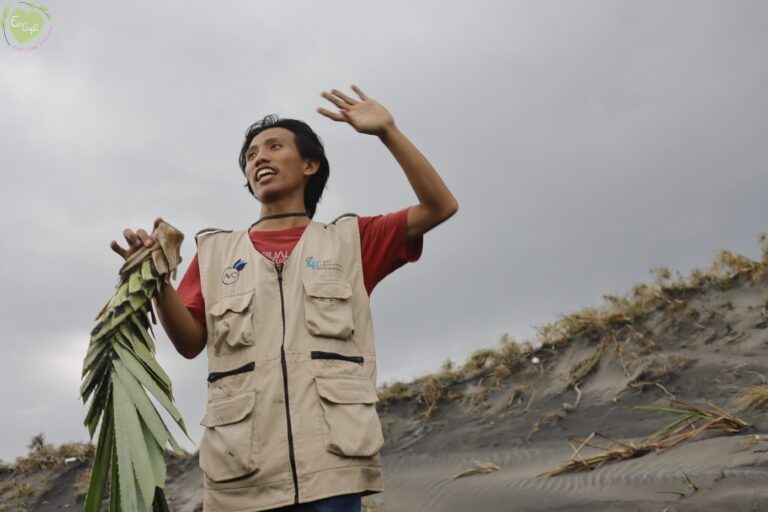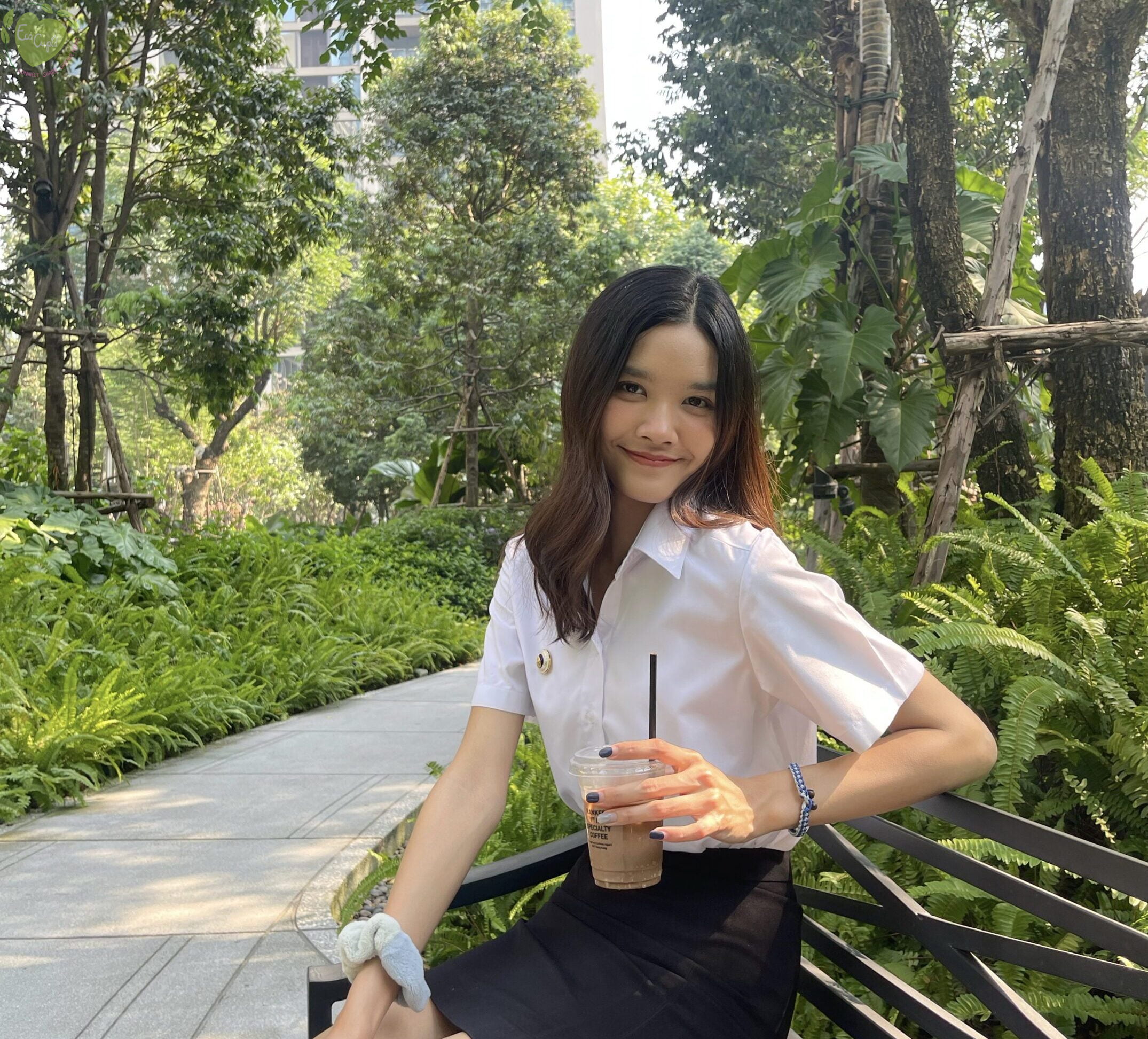Eco-Heroes
Safeguarding Indonesian Sea Turtles and Locals with 4K
18 May 2023
By Pakpitchaya Borvonsin
A turtle conservation group based in Yogyakarta, Indonesia, confronts turtle nest poaching and marine pollution by convincing locals that conservation is not associated with loss.
If you search “marine ecosystems” on Google, I am more than sure that sea turtles will be among the first to pop up. This is not surprising, considering that they are a keystone species or a vital species whose disappearance can affect the whole ecosystem. Six of the seven species of this essential animal can be found in the Asia-Pacific region alone. Indonesia is among the top countries where sea turtle nesting sites are located, highlighting it as a significant conservation battleground for the vital yet endangered species here.
Sea turtles in Indonesia have been faced with several threats, with egg poaching and marine plastic pollution being the major ones. Regarding poaching, although hunting and trading sea turtles and their eggs have already been made illegal under Indonesian law, they are still common on the ground. Conservators still have to purchase the eggs from poachers to prevent them from getting lost or consumed.
Luckily, local communities around the archipelagic country are stepping up to do something about this. In this article, you will be introduced to 4K (pronounced as four-keys), a motivating sea turtle conservation initiative, launched by a group of young people in Yogyakarta, Indonesia. They aim to mobilize local youth to protect sea turtles by running educational campaigns, improving the nesting environment, and creating a safe hatchery and nursery site for the species.
The beginning of 4K
It is impossible to talk about the journey of 4K without talking about its founder: Daru Aji Saputro. As a biology student, Daru was determined to use what he had learned to benefit his community. That’s why in 2020, he along with his three friends decided to start 4K—a volunteer forum—not only to protect sea turtles but also to support those who care for the species.
K in 4K comes from ‘Konservasi’, an Indonesian word for conservation. The name is read as ‘4 key(s)’, signifying the 4 initiators who wanted to be a key to a better environment.
Although there are turtle conservationists in Yogyakarta, many remain unaware of the presence and significance of sea turtle conservation.

Worse, even though poaching is legally prohibited and hence should be easily countered with reporting an incident to the police, that is not how things work out in reality.
“People here tolerate the hunting of sea turtles and their eggs despite the already small sea turtle population in Yogyakarta,” says Daru as he points out a social norm not to report wildlife crime on Pelangi Beach.
According to him, poachers are only local people, who at the end of the day, are their ‘neighbors’. Thus, the idea of reporting them to the police usually causes anticipated guilt among locals and conservators. Daru soon realizes that 4K needs to address the problem without causing conflicts in the community.
Non-confrontational efforts to save sea turtles
Being aware of this situation, not only does 4K focus on conserving turtles and promoting the welfare of the conservationists, but they also aim at raising awareness and encouraging more people to engage in sea turtle conservation activities.
To combat poaching, they try to mobilize as many people to patrol Pelangi Beach as possible to rescue the eggs before poachers find them. 4K believes that if poachers are outnumbered by those who want to save the eggs, they will get scared off.
4K has created Sea Turtles Patrol to relocate turtle nests away from tourism hotspots on Pelangi Beach during nesting seasons, which happen from April to June. They are concerned about the serious negative impacts that tourist activities, such as trampling, flash photography, and plastic littering, could pose on turtles and their ability to lay eggs.
Every night during the nesting season, 4K volunteers walk around the beach three times a night in groups of five to ten people to collect turtle eggs. After relocating the discovered nests, they return from time to time to the sheltered hatchery to take data on hatching success rates.
Usually, it takes roughly one month and a half for sea turtles to hatch. When they do hatch, 4K will invite the public to release them. And, considering that 4K is currently not receiving funding or any other kind of support from any sources, they inevitably have to charge those who join this activity.
4K also focuses on improving the local beach ecosystem by planting Pandanus species. Pandanus are palm-like shrubs commonly found by the beach and are known to withstand drought, strong winds, and salt spray. Turtles are attracted to nest under Pandanus because they can maintain proper temperature and humidity levels that are suitable for egg incubation. If turtles nest underneath these shrubs, the nests are also protected from predators who are wary of the sharp, jagged leaves of the Pandanus.
4K also regularly organizes beach clean-up activities to ensure that the beach is free of rubbish that could threaten or injure turtles. Aside from cleaning the beach, they also sort and recycle the collected waste while educating young people on how to do it independently. Because 4K has identified the main problem as the community’s lack of awareness regarding sea turtle conservation, they run several educational campaigns for local youth to become more concerned about conserving the species.
How the hard work pays off
“There has been a decrease in sea turtle nest poaching”, says Daru.
According to Daru, before 4K was formed, approximately 15 nests were poached every year. This is very high, considering the total number of 20-40 nests that could be found in Yogyakarta annually. Fortunately, the total number of nest poaching has now dropped down to three to five nests per year after 4K started to run their activities. He also adds that the percentage of turtle hatching also increased by around ten percent from 61 percent to 72 percent.
When I scrolled through 4K’s profile feed on Instagram, I saw how they had attracted so much attention both on the ground and online that I forgot to think about how challenging it must have been for them before they came to this point, and for them to maintain this motivating initiative. But after talking to Daru, I learned about the other side of things.
Not a bed of roses
Daru explains the difficulty of involving the locals in conservation as they can often earn more from involving in tourism activities, such as by selling food and organizing Jeep tours.
“Local people do not want to be directly involved in conservation, considering that conservation is associated with loss,” says Daru.
Nonetheless, Daru says that he noticed some positive changes among the communities that helped 4K with conservation. Since 4K started ecotourism activities such as releasing sea turtle hatchlings, they managed to recover their losses from running conservation activities. As a result, the community started to feel reassured to continue carrying out sea turtle conservation activities.
He adds that the fact that 4K is not yet a legal entity and hence not being able to secure support from the government is also a challenge, especially to their long-term survival. Daru acknowledges that it will take time and a lot of effort. Thus, according to him, 4K will keep focus on their goal–to save sea turtles and the local community–for the time being.
Driven by the goal to save Yogyakarta’s sea turtles
When asked about 4K’s future plans, to become legally recognized is one of those. But another major plan for Daru and his team at 4K is to expand the scope of their conservation effort to other parts of Yogyakarta, aside from the Pelangi beach.
“We want to save the fate of sea turtle conservation in Yogyakarta. That’s our closest dream. Considering that we’ve already made some progress, we will try to go wider to help sea turtle conservation in Yogyakarta,” says Daru.
After getting to know a community with such a strong determination to save turtles and persistence to carry on the activities despite several difficulties, I hope everyone feels moved; because I truly do. But what is more important—especially given that three ASEAN countries, including Indonesia, Malaysia, and the Philippines are considered the most dangerous places for sea turtles in the world with the most threatened populations—is that I hope this article will help us, ASEAN youth, see the significance of sea turtles and the urgency of conserving them.
(Edited by Bryan Yong)
Our featured Eco-Hero
4K Aksi Konservasi Yogyakarta (4K) is a youth movement that combines creative volunteer ecotourism and turtle conservation. Based in Pelangi Beach, Yogyakarta, Indonesia, 4K focuses on mobilizing local youth to protect sea turtles by running educational campaigns, improving the nesting environment, and creating a safe hatchery and nursery site for the species, while improving the livelihoods of the local community through ecotourism activities. You can reach out to them at https://www.instagram.com/4k.yogyakarta/
This article was produced with support from YSEALI SEEDS for the Future grant 2023.


Pakpitchaya Borvonsin
Pakpitchaya Borvonsin or Wan is a fresh graduate from Thailand. She’s passionate about the ocean and determined to devote herself to the field of marine conservation. Currently, she is working as a project assistant for a Japan-Thailand joint research project on aquaculture, from which she is learning a lot about how sustainable aquaculture is necessary for the achievement of SDGs.
